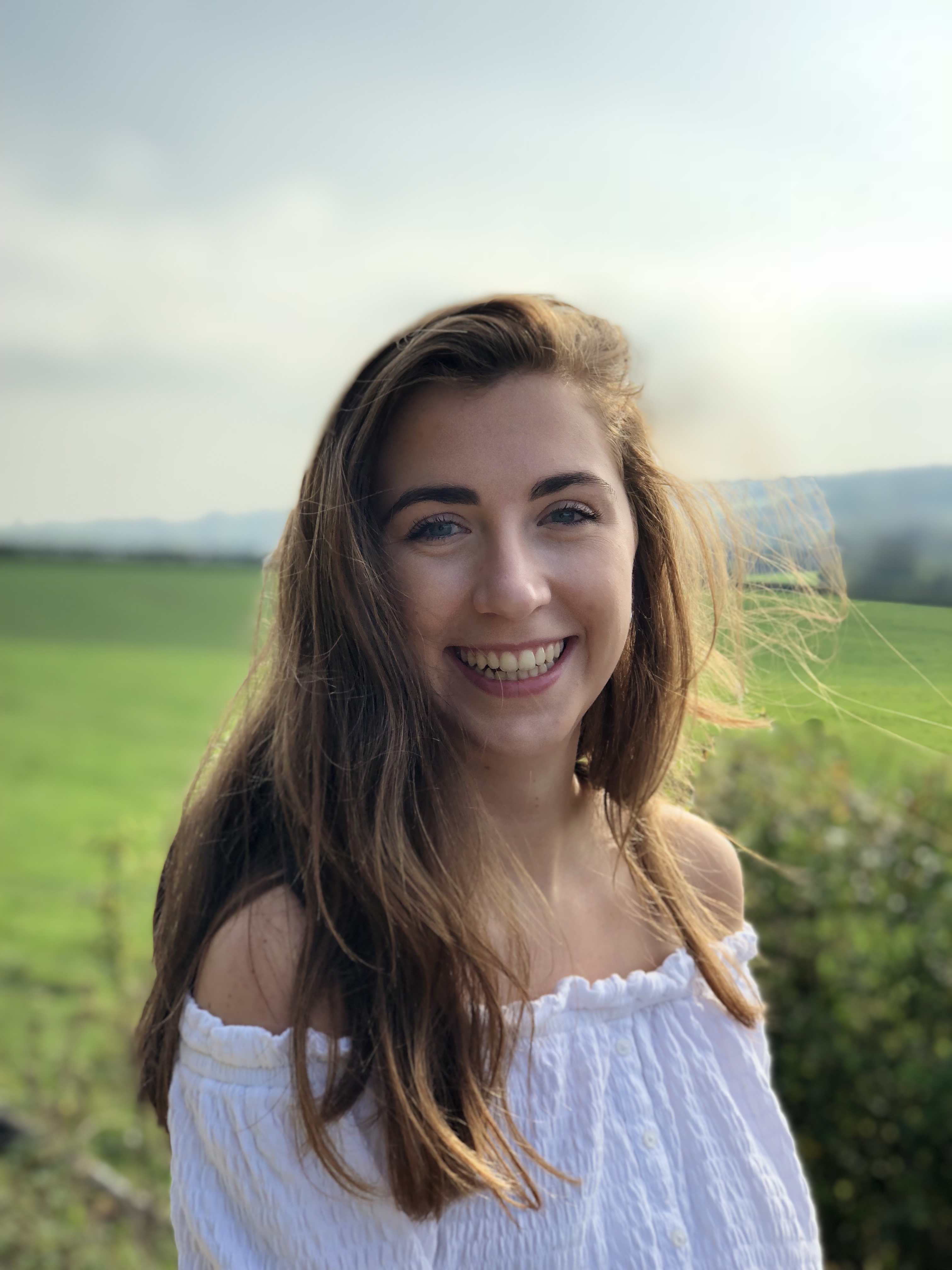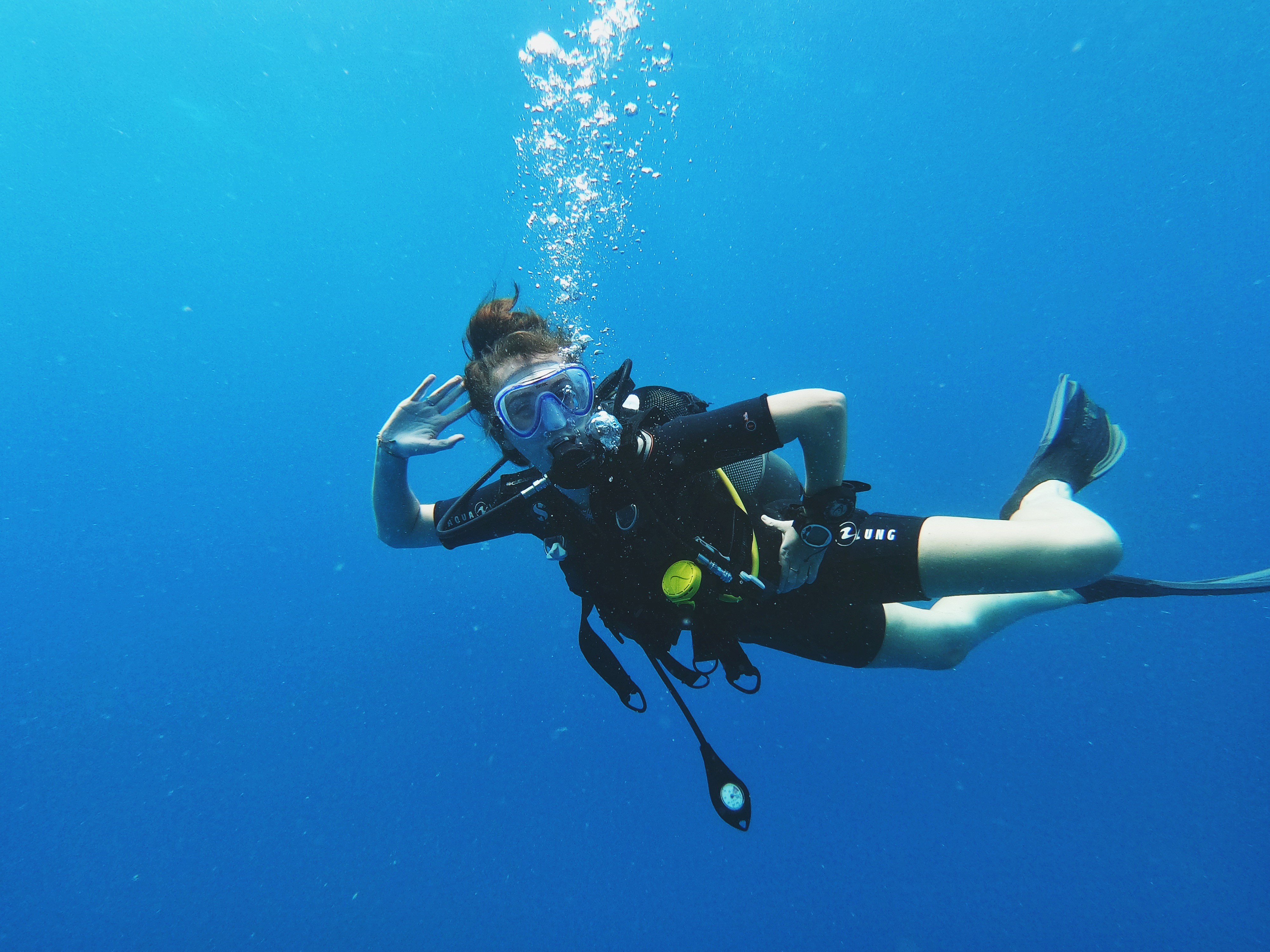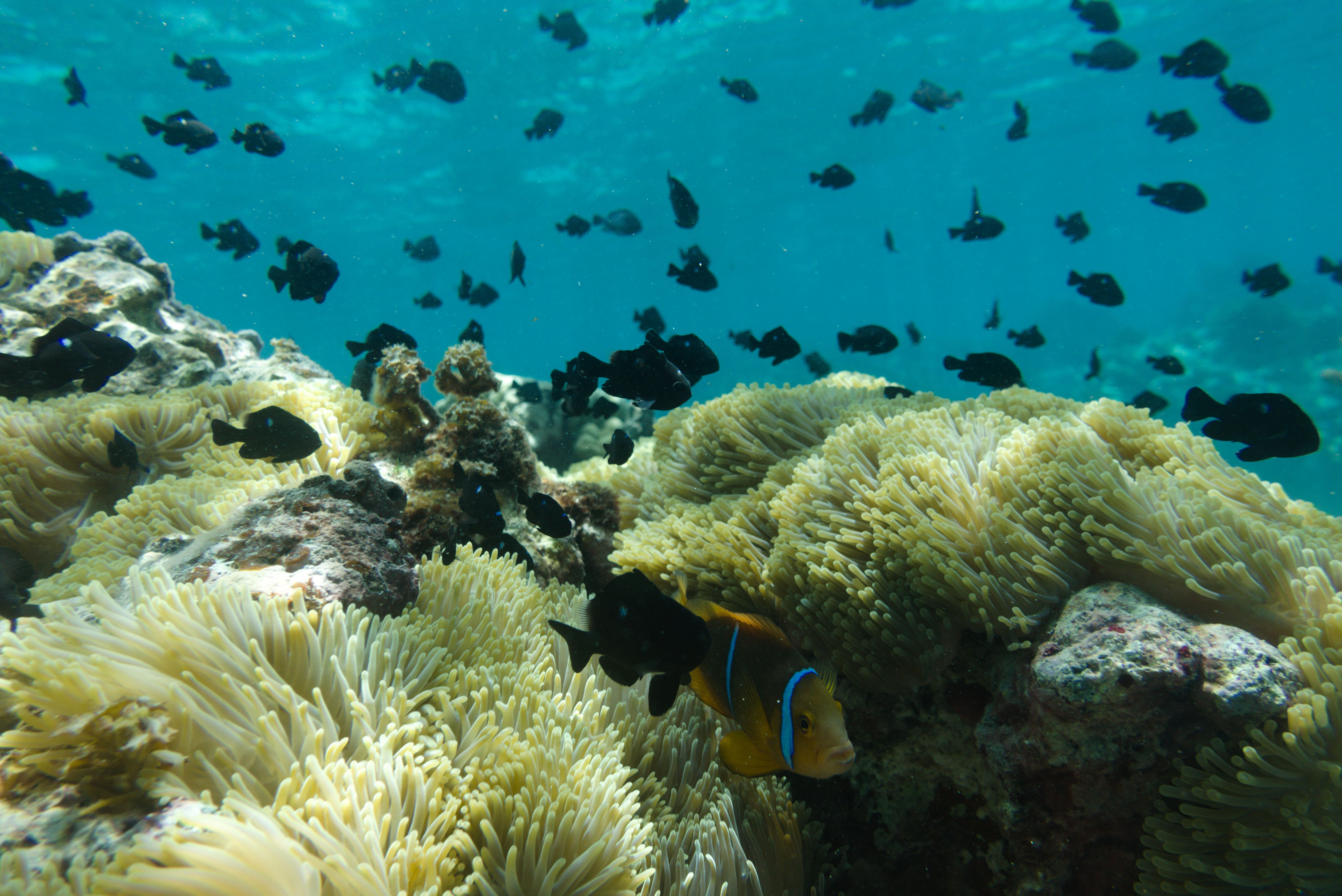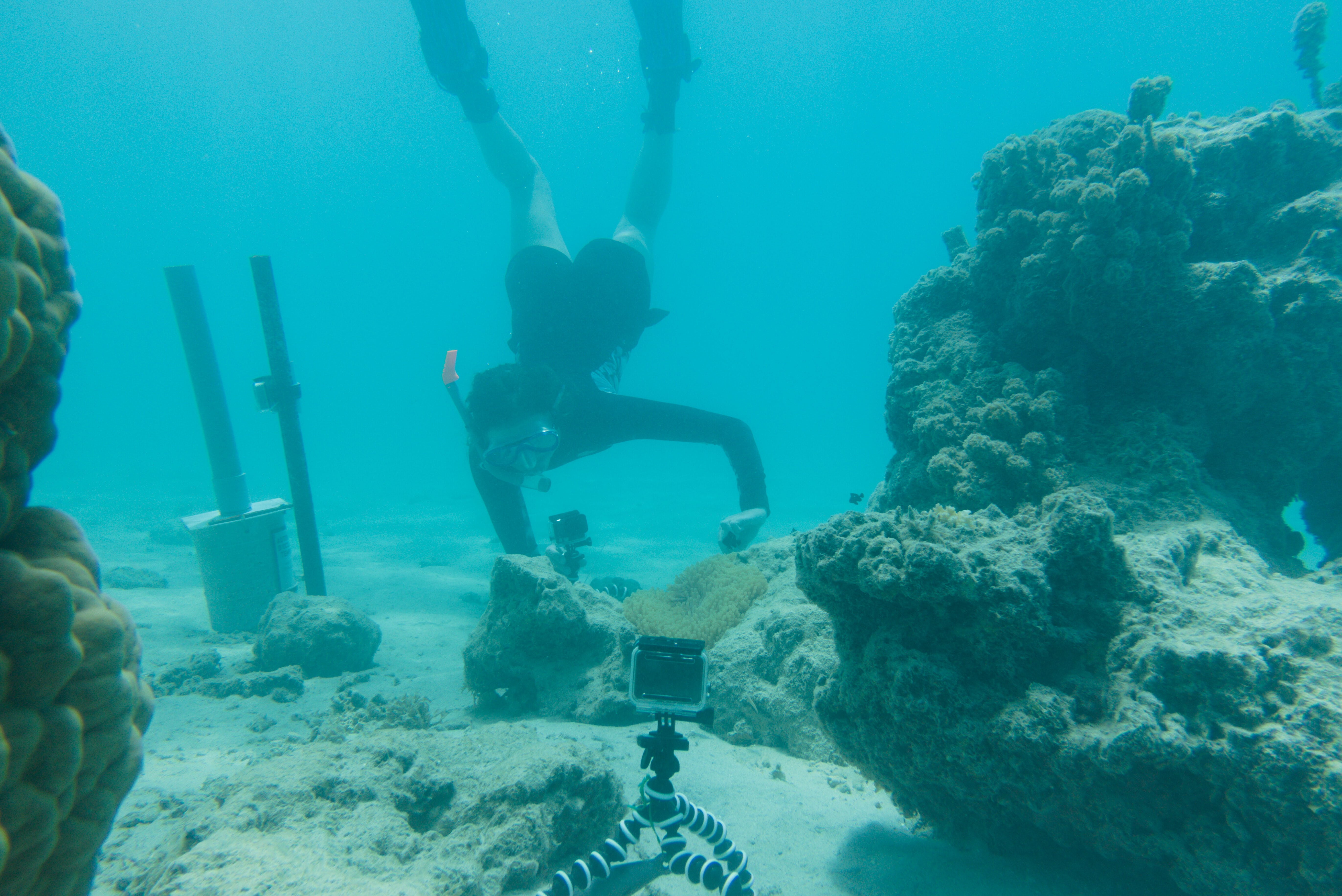
Hello all! My name is Isla Hely and I am a Masters by Research student at the University of Exeter under the supervision of the incredible Professor Steve Simpson.
It’s safe to say that 2020 was a bizarre year for many. I, for one, can attest to this.
My Masters journey has been anything but simple. However, after a year riddled with ups and downs, I am happy to confirm that I am writing this blog post sat in a wonderfully air-conditioned office at le Centre de Recherches Insulaires et Observatoire de l’Environnement. In short, CRIOBE; a French research station nestled between green mountains, located on the idyllic gemstone of an island: Moorea, in French Polynesia. Fieldwork during any period of time, regardless of a pandemic, is hard enough, but with the added hurdles it took to get here, I genuinely feel so fortunate to be here, doing what I love.
Here’s my journey.
January 2020: Mauritius
My first official field trip for my Masters by Research to the island of Mauritius in the Indian Ocean doth commence. My main focus for this field trip was to explore communication in the reef fishes of Mauritius, with a key focus on UV markings of damselfish and mouth-brooding behaviour and vocalisation in cardinalfish. As a lone researcher and traveller, I was filled with the myriad of feelings that accompany the start of a new major chapter: excitement, nervousness and anticipation to name but a few. I was raring to go, and hungry to learn. The Mauritius expedition presented me with the opportunity not only to advance my dive training, but also to network with inspirational local reef conservation NGO’s and to work alongside the BBC and obverse, first-hand, the process of natural history documentary filmmaking.

February-March 2020: COVID-19 Pandemic
COVID-19 hits the UK, followed swiftly by Mauritius. Being 6000 miles away, I definitely felt a bit detached from my motherland. I was loosely following the progress of COVID from China to the UK, feeling rather safe and protected on my little island in the Indian Ocean. However, on the 18th March 2020, Prime Minister Pravind Jugnauth confirmed that there were 3 cases of COVID-19 in Mauritius. Over the next few weeks, like in many countries, the situation worsened and after discussions with my supervisor and advice from the University, I was emergency repatriated back to the UK on the 23rd March.
March-May 2020: Interruption
March to May was an incredibly tough period personally for me, resulting in me deciding to interrupt my Masters with the full support of Exeter University and my supervisor. In short, a very close family member was taken seriously ill with COVID-19. At times like these, illnesses such as COVID-19 can feel like a distant threat and humans can falsely believe that we are untouchable. This period of my life made me realise that we are quite the opposite – a fact that in its intensity is both terrifying, but simultaneously motivating. It made me think: we have one life! Following the miraculous recovery of this incredibly resilient and brave family member, I had a new drive to seize the day and jumped straight back on the bandwagon of marine research. This started with myself and my supervisor rethinking the direction of my Masters project.
May-October 2020: Collaboration & Clownfish
I truly believe that collaboration is one of the key pillars maintaining the balance in the world of science; connecting with scientists from all around the world takes what can be achieved in science to the next level. I was fortunate enough to collaborate with two brilliant, bubbly, bonkers Marine Biologists on my next venture: Dr Suzanne Mills and Dr Ricardo Beldade. This period of time involved me, sat at my desk, cup of coffee in hand, watching and analysing 100’s of hours of videos of French Polynesian clownfish, captured previously by Suzie and Ricardo. This analysis allowed me to highlight the complexities of clownish vocalisation, showing vocalisations to be highly linked with behaviour, and proving that these charismatic fish are in fact a whole lot more tuneful than suggested by the current literature.

November-December 2020: The Next Step – French Polynesia
Following the exciting discoveries of my first chapter, I was looking to the horizon and thinking ‘what’s next?’. This is where Dr Mills and Dr Beldade saved the day (AGAIN!). I was very kindly invited to join them in French Polynesia on an Artificial Light At Night (ALAN) project, working with the same tuneful heroes from my first chapter: the orange-fin anemone fish (Amphiprion chrysopterus). Understanding the impacts we, as humans, have on our surrounding natural environment and the species we coexist with, is what drives me in my journey in science. In understanding the impacts we have, we can alter the course of these impacts and mitigate against them to better improve our environment. My aim with this project is to comprehend that first step of understanding the impact we have, with a focus on light as the anthropogenic stressor in question.

My next few months here will be a busy old time. Throughout my three month field season here, my time will be split up with many a day in the field (or ‘sur le terrain’ as they say here!) come sunshine or rain, many a day in the workshop learning how to use various tools and thinking creatively about how to optimise GOPRO positioning to effectively capture clownfish behaviour, as well as many hours spent talking and networking with my fellow researchers at the station and learning about the innovative and inspiring projects that are going on here. I honestly just can’t wait to get stuck in.
I hope you will join me on my French Polynesian scientific adventures, if you are keen, please follow me on Twitter: helyyy_i for all updates from tropical Moorea.
Mauururu (thank you in Polynesian!)
#ExeterMarine is an interdisciplinary group of marine related researchers with capabilities across the scientific, medical, engineering, humanities and social science fields. If you are interested in working with our researchers or students, please visit our website!
